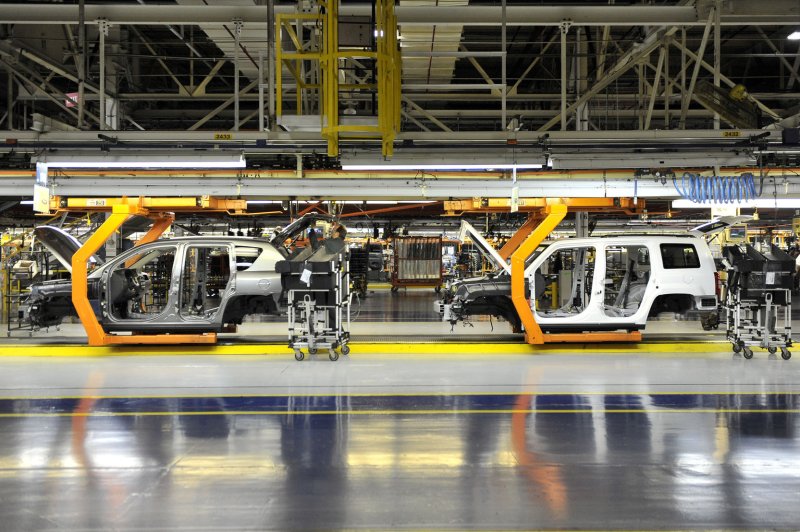The automotive industry may have some retooling to do in order to keep pace with emerging trends for electric vehicles, the International Monetary Fund reported. File photo by Brian Kersey/UPI |
License Photo
Aug. 1 (UPI) -- The automotive industry may need to play catch up in order to cope with the growth in electric vehicles, a report from the International Monetary Fund found.
A review of trends in the electric vehicle market from the IMF found that, in the four years ending in 2015, the pace of growth in EV sales was 120 percent. Using the transition in the 20th century from horse-drawn carriages to fuel-powered vehicles as a benchmark to measure progress, the report found that pace suggests motor vehicles could vanish from markets in advanced economies within the next 20 years.
A snapshot from the U.S. Bureau of Labor Statistics finds there are fewer employers working on motor vehicles and parts manufacturing than last year, based on June data. Average hourly earnings, meanwhile, have recovered since the global recession, but are still, at $21.45 per hour, about 80 cents lower than they were 10 years ago.
The trends may reflect greater automation and the potential impacts of globalization, as automakers shift manufacturing to markets with lower labor costs. For the shift in vehicles themselves, the IMF said retooling may be necessary.
"Electric cars take fewer parts to produce, and require less maintenance than motor vehicles," its report read. "Therefore, investment in people is critical -- whether job training or reskilling programs -- to enable workers in both advanced and emerging market economies to work with new technologies, such as self-driving cars and in industries such as battery production."
The British government said last week it would ban all new gasoline- and diesel-powered vehicles from its roads beginning in 2040. It follows a similar declaration in France and comes after the British government was ordered by courts to develop new plans to reduce nitrogen dioxide in the air.
"We can't carry on with diesel and petrol cars," Environment Secretary Michael Gove said.
Swedish automaker Volvo recently said it was marking an end to the era where its consumer fleet has vehicles powered only by the internal combustion engine. All vehicles launched from 2019 will have an electric motor.
"The environmental benefits could be huge," the IMF added. "What this means is that policymakers and businesses must anticipate the potential consequences of the rise of electric cars and start implementing the right policies for a smooth ride."















